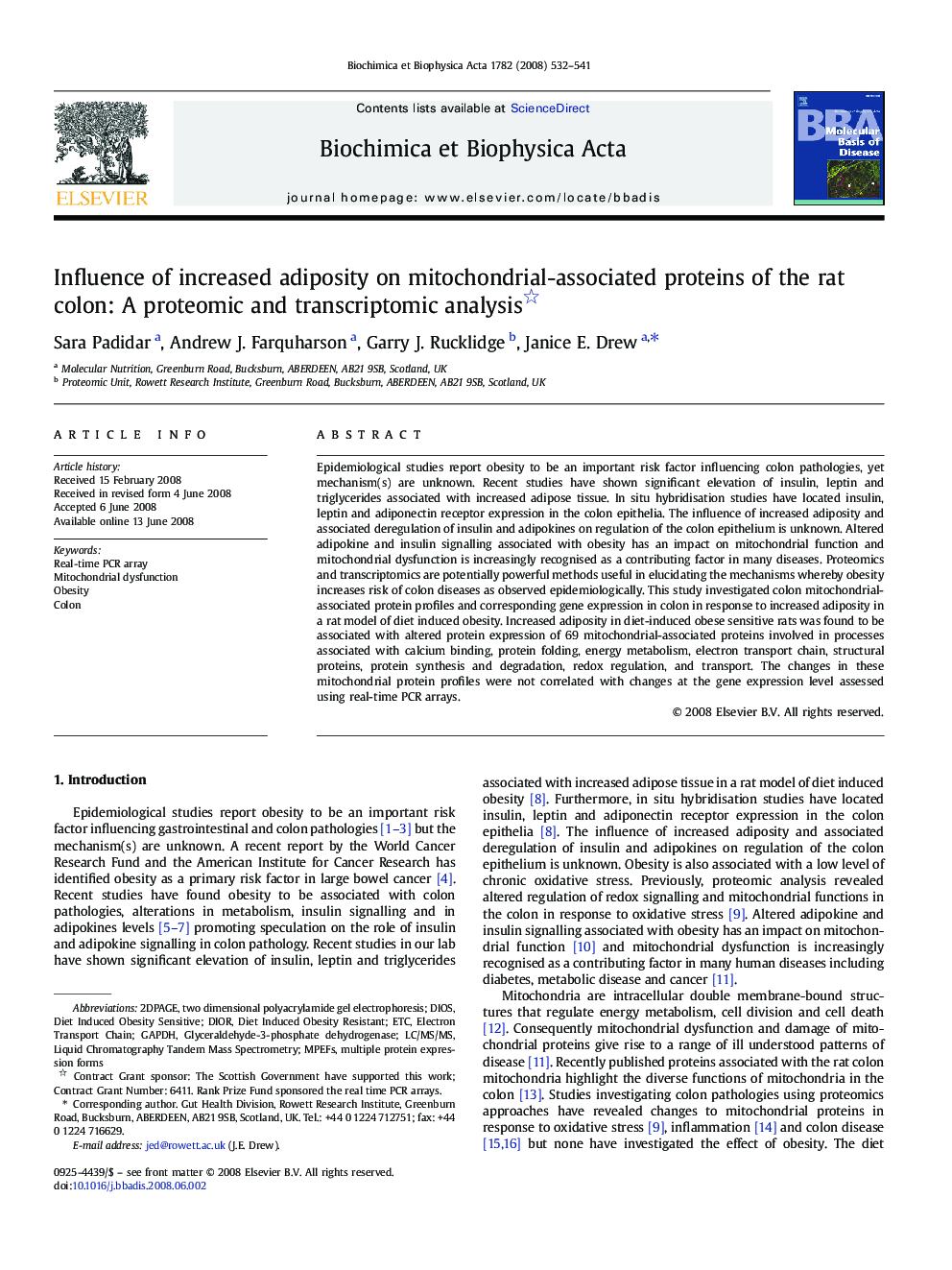| Article ID | Journal | Published Year | Pages | File Type |
|---|---|---|---|---|
| 1905617 | Biochimica et Biophysica Acta (BBA) - Molecular Basis of Disease | 2008 | 10 Pages |
Epidemiological studies report obesity to be an important risk factor influencing colon pathologies, yet mechanism(s) are unknown. Recent studies have shown significant elevation of insulin, leptin and triglycerides associated with increased adipose tissue. In situ hybridisation studies have located insulin, leptin and adiponectin receptor expression in the colon epithelia. The influence of increased adiposity and associated deregulation of insulin and adipokines on regulation of the colon epithelium is unknown. Altered adipokine and insulin signalling associated with obesity has an impact on mitochondrial function and mitochondrial dysfunction is increasingly recognised as a contributing factor in many diseases. Proteomics and transcriptomics are potentially powerful methods useful in elucidating the mechanisms whereby obesity increases risk of colon diseases as observed epidemiologically. This study investigated colon mitochondrial-associated protein profiles and corresponding gene expression in colon in response to increased adiposity in a rat model of diet induced obesity. Increased adiposity in diet-induced obese sensitive rats was found to be associated with altered protein expression of 69 mitochondrial-associated proteins involved in processes associated with calcium binding, protein folding, energy metabolism, electron transport chain, structural proteins, protein synthesis and degradation, redox regulation, and transport. The changes in these mitochondrial protein profiles were not correlated with changes at the gene expression level assessed using real-time PCR arrays.
